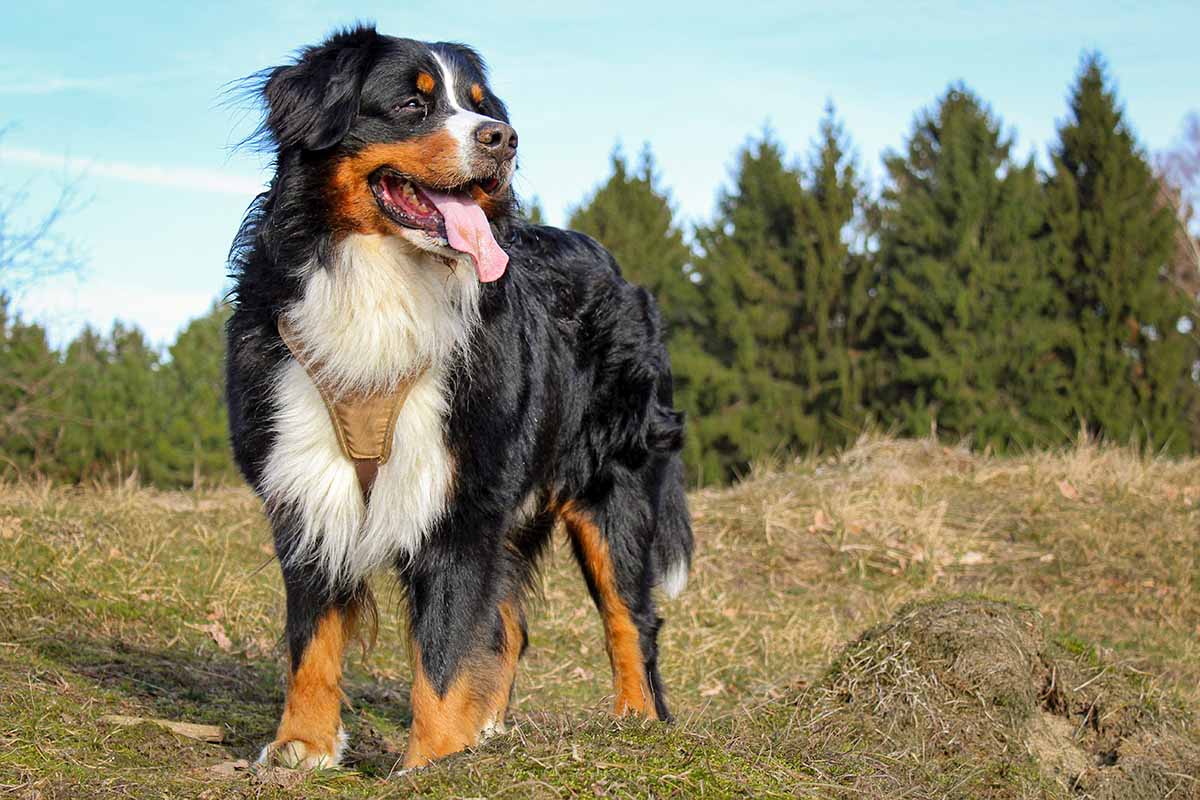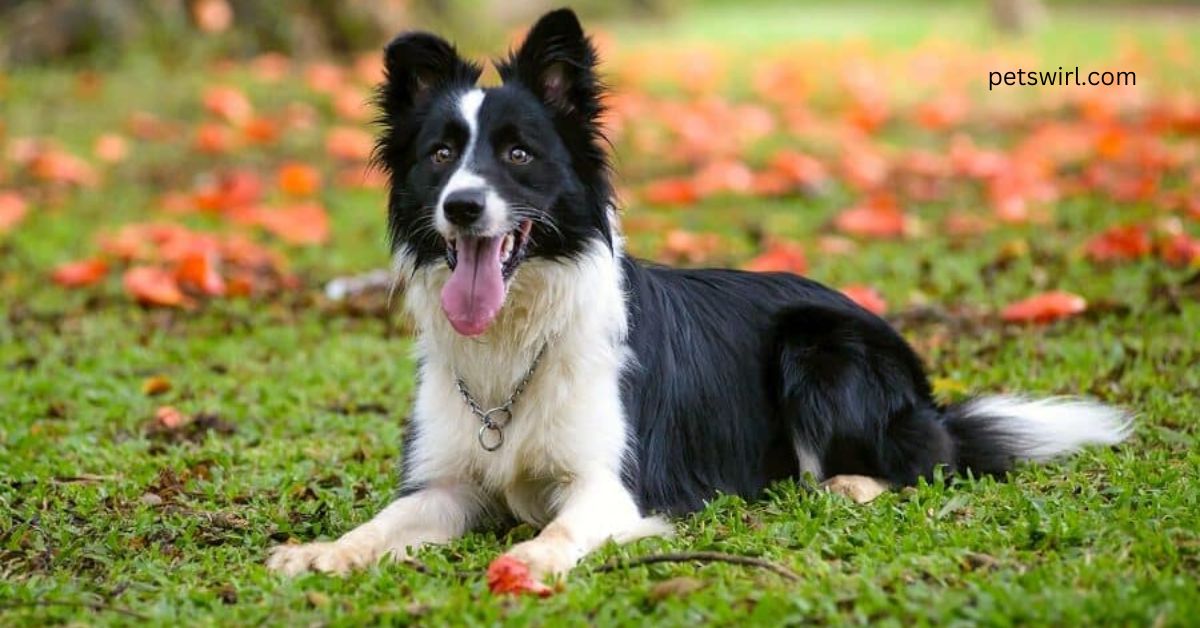The Bernese Mountain Dog is a large, lovable breed known for its striking appearance and gentle nature. This breed originates from Switzerland, where it was traditionally used as a working dog. With its thick, tricolored coat, powerful build, and calm demeanor, the Bernese Mountain Dog has become a beloved family pet across the world. If you’re considering welcoming one of these gentle giants into your home, it’s essential to learn more about the breed’s temperament, care needs, and characteristics to ensure a happy, healthy relationship.
Table of Contents
Origins and History
The Bernese Mountain Dog has a long history rooted in the Swiss Alps. Originally bred as a farm dog, the breed was primarily used for herding cattle and pulling carts. Their strength and endurance made them invaluable companions for Swiss farmers. The name “Bernese” comes from the canton of Bern, where the breed was especially prevalent. Despite its working origins, the Bernese Mountain Dog is just as comfortable being a loyal family companion. The breed’s history as a hard-working, dedicated dog is still reflected in its strong work ethic and loyalty to its owners.
Physical Appearance and Characteristics
One of the most striking features of the Bernese Mountain Dog is its beautiful, thick, tricolored coat. Their fur is primarily black, with distinctive rust and white markings on their face, chest, and legs. These dogs are large, with males weighing between 80 to 115 pounds and females typically weighing 70 to 95 pounds. Their sturdy, muscular build complements their working-dog heritage. Another characteristic of these dogs is their expressive, dark brown eyes that often reflect their calm and gentle nature.

Temperament of the Bernese
When it comes to temperament, the Bernese Mountain Dog is renowned for being gentle, affectionate, and loyal. They are known for forming strong bonds with their families, making them excellent companions for children and adults alike. These dogs thrive on human interaction and are known to be protective but not aggressive. The Bernese is typically patient and gets along well with other pets, making them a great choice for families with multiple animals. They are eager to please, which makes training them relatively easy, but their sensitive nature requires a gentle, positive approach to training.
Health and Lifespan
The Bernese Mountain Dog, like many large breeds, has a relatively short lifespan, typically ranging between 7 to 10 years. While they are generally healthy dogs, they can be prone to specific health issues, such as hip dysplasia, elbow dysplasia, and certain types of cancer. It’s important for potential owners to be aware of these health risks and to ensure that their Bernese Cattle Dog receives regular veterinary care, a balanced diet, and appropriate exercise. Breeders who prioritize health testing can help minimize the risk of hereditary conditions in their dogs, so it’s always a good idea to seek reputable breeders.
Exercise and Training
The Bernese Mountain Dog is a moderately active breed that enjoys outdoor activities. While they don’t have the energy levels of some other working breeds, they still require regular exercise to stay healthy and happy. Daily walks, playtime, and opportunities to roam in a secure area are essential for a Bernese Mountain Dog. Despite their size, they are not overly rambunctious and tend to prefer moderate activity. Training a Bernese should begin early, as they grow quickly and can become difficult to manage if not properly trained. Due to their eagerness to please, they generally respond well to training, particularly when it is conducted in a calm and patient manner.
Grooming Needs
The beautiful coat of the Bernese Mountain Dog comes with a moderate amount of grooming requirements. Their thick double coat sheds throughout the year, with heavier shedding occurring in the spring and fall. Regular brushing, at least once or twice a week, is necessary to keep their coat healthy and free of mats. During shedding season, daily brushing is recommended. Additionally, like any other dog, a Bernese Mountain Dog will benefit from routine grooming tasks such as nail trimming, ear cleaning, and teeth brushing. Proper grooming helps keep the Bernese Mountain Dog looking their best and contributes to their overall health and well-being.
Socialization and Suitability for Families
The Bernese Mountain Dog is an excellent choice for families due to its gentle and tolerant nature. Early socialization is crucial to help the dog adapt to different environments, people, and animals. A well-socialized Bernese Mountain Dog will grow into a confident, well-adjusted adult that interacts well with children, strangers, and other pets. Their calm demeanor makes them ideal companions for families with young children, as they tend to be patient and tolerant. However, due to their large size, supervision around small children is always recommended to prevent any accidental bumps or falls.
Nutrition and Feeding
Feeding a Bernese Mountain Dog the right diet is essential to ensure their overall health and longevity. As a large breed, they have specific nutritional needs that differ from smaller dogs. A balanced diet, rich in protein and essential nutrients, is vital for their growth and maintenance. Owners should be careful not to overfeed their Bernese Mountain Dog, as they can be prone to weight gain, which can exacerbate joint issues like hip dysplasia. It’s important to consult with a veterinarian to determine the best feeding schedule and portion sizes for your Bernese Mountain Dog based on their age, weight, and activity level.
Role in Modern Life
In modern times, this dog has transitioned from a farm worker to a beloved companion dog. However, many of their working instincts remain intact, and they often excel in various dog sports, including cart pulling, herding trials, and agility. Some Berner Dogs are even trained as therapy or service animals due to their calm demeanor and strong bonds with their owners. Whether they are participating in activities or simply lounging with their families, the Bernese Mountain Dog brings joy and comfort to those around them.

What to Consider if Adopting a Bernese Mountain Dog
If you’re thinking of adopting a Bernese Mountain Dog, there are a few important factors to consider. First, they require space to move around, so they are better suited for homes with large yards. Additionally, while they are gentle giants, their size can make them a bit overwhelming for first-time dog owners. Prospective owners should also be prepared for the grooming needs and potential health issues that come with owning a Bernese Mountain Dog. Adoption should always be done through a reputable breeder or rescue organization that prioritizes the health and well-being of the dogs.
Conclusion
The Bernese Mountain Dog is a loyal, loving companion with a rich history as a hardworking breed. Whether as a working dog or a family pet, the Bernese Mountain Dog shines with its affectionate nature, striking appearance, and calm temperament. Owning one of these dogs is a rewarding experience, but it also comes with responsibilities, including proper grooming, exercise, and healthcare.





